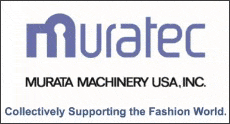
Posted November 16, 2017
By Devin Steele (DSteele@eTextileCommunications.com)
LOS ANGELES – Shima Seiki Mfg. and its subsidiary, Shima Seiki USA, continue to put the right people in the same room to learn, network and figure out ways to shorten the supply chain and reshore the Americas.
Most recently, the company hosted the fourth edition of its Global 3D (G3D) Knitting Seminar & Workshop, G3D-4, at its downtown LA showroom here. The two-day event attracted nearly 200 knitters, fiber producers, retailers/brands, associations, academia, entrepreneurs and others. Earlier this year, the company staged its third such event on the East Coast, in Brooklyn, N.Y.
Presentations covered everything from smart fibers and fabrics to knitting in the USA to market dynamics to industry trends to sustainable practices – and a lot in between. Attendees heard several success stories of companies, universities and other entities that are using technology from Shima Seiki, the Japan-based flat knitting machine manufacturer that developed seamless, WHOLEGARMENT® knitting.
Among speakers were Mario Paniccia, CEO of Versalume, a Silicon Valley, California-based company that focuses on developing smart, integrated products and solutions based on Corning® Fibrance® Light-Diffusing Fiber. Fibrance fiber is an innovative optical fiber created by Corning from a unique glass composition for maximum flexibility – it can be bent, curved and wrapped around almost anything, while maintaining bright, beautiful and uniform light, he said.
“The goal is to work with designers and industry pioneers and OEMS to rapidly prototype new products and facilitate new usages,” Paniccia said. “We have active engagements in applications across automotive, architecture, consumer electronics, wearables and medical markets.”
Versalume has been working with Shima Seiki on prototyping to figure out best practices for knitting the fiber into fabrics. Integrating fiber into clothing opens a world of possibilities, Paniccia said, among but not limited to: creating nighttime visibility; the ability to change color based on mood or lighting; and the detection of temperature, humidity, acceleration, etc. – all of which can be controlled with a smartphone.
Meanwhile, Dr. Susan Sakolowski of the University of Oregon’s Sports Product Design discussed a design curriculum around the use of 3D tools and soft goods engineering. “We’re very unique that way in that most schools either do soft goods or hard goods but we do both,” she said.
Isaac Nichelson, founder of S3 (Sustainable Source Studios), Los Angeles, discussed the case for change in the fashion industry in the area of sustainability. He explained a partnership with a Spanish company that uses a system called Recover to turn textile waste into high-value, upcycled materials. He said his company is working to scale up the system for the NAFTA and CAFTA regions.
The following day, Nichelson gave a presentation on Recover PCT, a state-of-the-art process for garment and clothes recycling. High-quality cotton fiber is recovered from post-consumer and pre-consumer garment waste, he said, and woven or knitted into new textile goods. “We’re trying to establish manufacturing in this hemisphere, but we’re waiting for the right partners to do that,” he said.
Midori Sargent of the Academy of Art University presented a summary of the San Francisco-based, for-profit art school that offers knitwear design MFA and BFA degree programs.
Annie Lim, senior knitwear designer at MM.LaFleur, showed the company’s Noble Knit Collection and explained the company’s values, which include: problem solving; producing responsibly; and breaking the rules, she said.
“We knew that Shima Seiki was a good partner that aligns with our values,” she said, “And we knew that working with them would make our carbon footprint low.”
Elaine Harris, president and co-founder of Breakthrough Marketing Technology, Jersey City, N.J., gave an in-depth presentation on changing consumer dynamics, asking if that is a threat or opportunity. She delved into Millennials’ impact on retail and the values they hold that are driving this changing landscape.
Pano Anthos, managing director of NYC-based XRC Labs, based in the Parson School of Design, offered a discussion on ways to enable 3D knitting to go mainstream. Bringing 3D knitting to scale requires companies to increase their speed by three or four times, produce a niche product and enable the user to personalize the product, Anthos said. And personalization requires APIs, which basically allows users to build on top of technology and expand its capabilities, he added.
Bob Lineburg of New Jersey-based Comtrade International, discussed fibers and fabrics and his 44-year background in the industry. His company, an importer and supplier of yarns and fabrics, is on target to have the best year it has had in 10 years because of diversification, he said. Comtrade sells denim primarily for the prison system and also manufactures terry towels sold in the U.S., as well as sheetings. It is also involved in raw material.
“Shima is on the cutting edge of technology, and they provide each of us in this room the opportunity to succeed,” Lineburg said. “Shima has demonstrated they lead with constant innovation and new technologies, opening up new boundaries for global companies.”
Stephanie Rodgers, director of Product Research & Development at Apex Mills, talked about a number of industry trends. Her company is a warp knitter based in New York, with a manufacturing facility in Graham, N.C. Apex Mills, along with Drexel University, has developed a capacitive touch sensor textile through AFFOA (Advanced Functional Fabrics of America), the MIT-based institute that is working with companies, universities and others to develop new smart fibers and fabrics, she explained.
Sarah Schlenger, key account manager at The Woolmark Co., extolled the virtues of Merino wool and how it is harvested and processed.
Michelle Letendre, owner of LMS Textile Consulting and co-founder of The Textile Foundry, discussed how companies can knit in the U.S. She explained that industries and companies want to explore flat bed knitting but they don’t have the knowledge or resources available to do so in a confidential manner. Plus, she said, knitting factories often don’t have the ability to focus on R&D and exploratory projects.
A solution is one of her partners, downtown Los Angeles-based BNG Knit, a company where customers can explore projects and ideas in a secure and confidential manner with scale-up abilities, she said. She explained how the process works and the benefits of using BNG.
Letendre later joined Shari Litow of Honeywell, who explained the benefits of the company’s Spectra® fiber, known as one of the world’s strongest and lightest manmade fibers. These fibers are used in many applications, from high-strength industrial ropes and fishing line to helmets, body armor and vehicle armor for members of the military and law enforcement.
In separate presentations, Sam Ming and Ford Bowden followed by Samantha Burdett and Hayoto Nishi, all of Shima Seiki USA, presented new developments by the company. Burdett explained how Shima’s new APEX3 design system and MACH2XS can help companies with development problems.
Liz Hilton, founder of KNITiT, Grand Rapids, Mich., gave an overview of 3D development in knitting and how her company is helping companies or individuals turn ideas into products using 3D knitting.
Dr. Jay Sun, founder of PPS, went over his company’s partnership with Supreme Corp. (d/b/a Volt Smart Yarns), a knitter based in Hickory, N.C. PPS, innovators of SmartVest that captures impact forces from law enforcement personnel while serving in the field, collaborated with Supreme to develop the VOLT smart yarn system and SmartVest. The resulting product recently captured the ShowStopper Award at the IFAI Expo in New Orleans.
Evita Chu of PDR Knitting LLC, Los Angeles, explained the importance of technical knowledge and material compatibility in knitting. “We cater to designers for the high-end market,” she said. “We translate their designs into knitting.”
Shima Seiki event offers ‘knit’ ideas to accelerate reshoring of Americas
 |
|---|
 |
 |
 |
 |
 |
 |
 |
 |
 |
 |
 |
 |
 |
 |
 |
 |
 |
 |
 |
 |
 |
 |
 |
 |
 |
 |
 |
 |
 |
 |
 |
 |
 |








